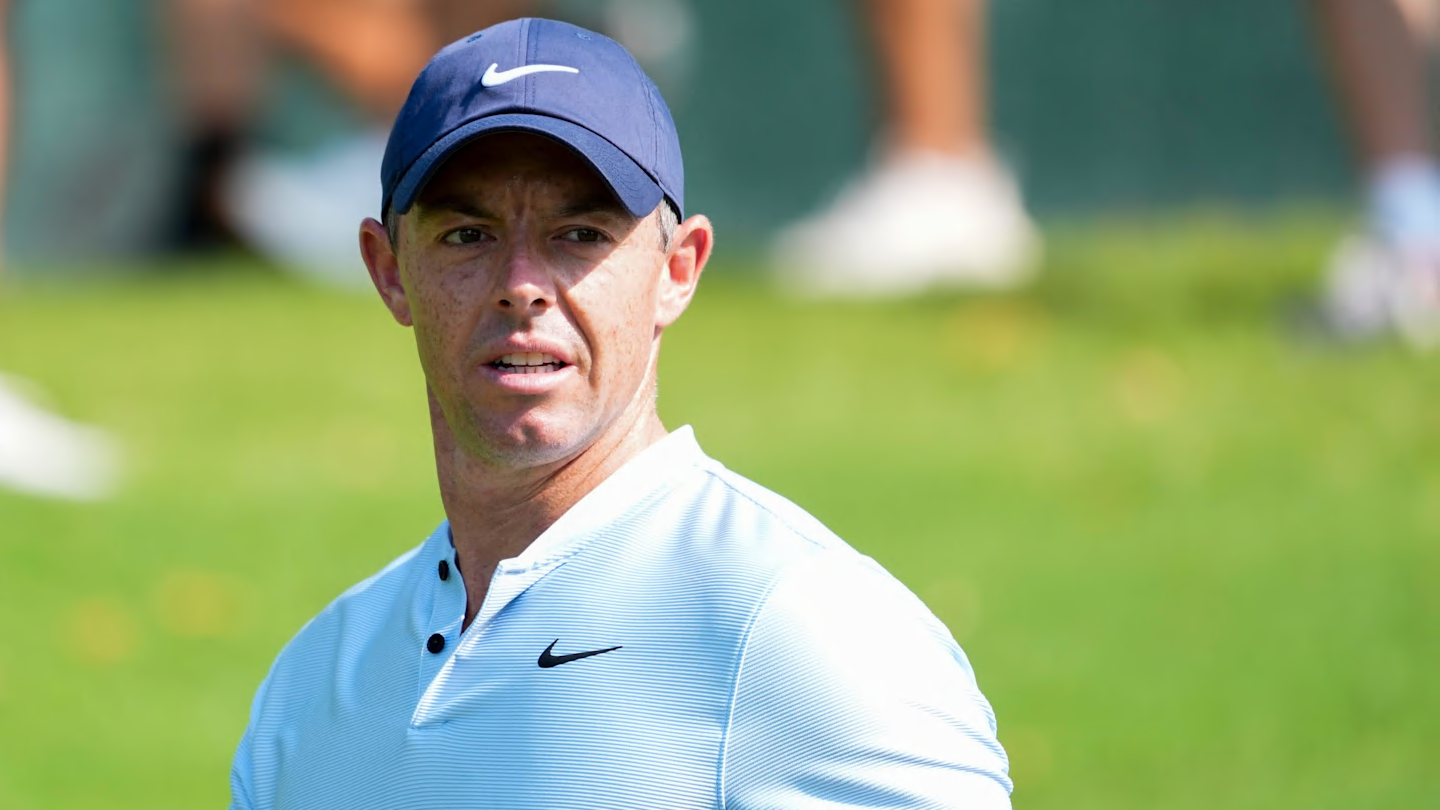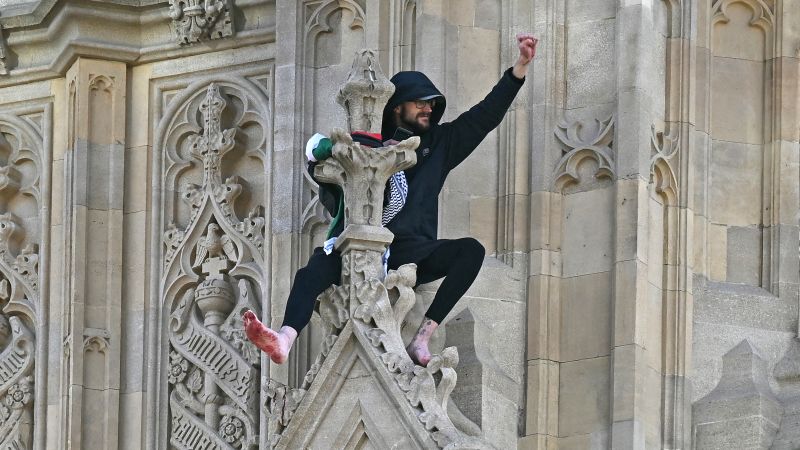Rory McIlroy Is Trying to Apply Pressure, but a Power Struggle Inside the PGA Tour Has Stalled Talks With LIV Golf

Rory McIlroy did not just make an announcement Wednesday. He fired a shot. McIlroy wants the best players on the PGA Tour and LIV Golf to play against each other, and so he is going to make that happen, and he will dare anybody to try to stop him.
McIlroy told Golfweek that he and Scottie Scheffler will face LIV’s Brooks Koepka and Bryson DeChambeau in a made-for-TV match in December. But McIlroy is enough of a TV junkie to know that the more compelling drama is what is happening away from the cameras: A power struggle inside the PGA Tour.
Top players can deny it publicly. They can say everyone is working together. But they know the truth, and that’s not it. The Tour has become like Congress, with different sides using political leverage and little-known bureaucratic rules to gain the upper hand.
McIlroy and his allies want to get a deal done with Saudi Arabia’s Public Investment Fund, to unify men’s golf under the PGA Tour umbrella.
A group led by Patrick Cantlay, Tiger Woods and Jordan Spieth wants control. They are driven in part (though certainly not exclusively) by anger. They were blindsided by the Tour’s framework agreement with PIF. Wherever the Tour goes from here, they want to control the terms, and they want those terms to be better for them than for the guys who ditched the Tour for LIV.
Then you have commissioner Jay Monahan. He is trying to keep his job. That reality hangs over all of this. Monahan has to cater to his stars, or he’ll get fired.
To understand this dynamic, consider a few developments from the past year.
Last fall, after calling Cantlay a “d—” and saying they had very different visions for the golf landscape, McIlroy resigned from his seat on the Tour’s Policy Board. Then, this spring, McIlroy decided he wanted to be on the board again.
Webb Simpson, a McIlroy ally, planned to resign and give his seat to McIlroy.
Predictably, not everybody on the board wanted McIlroy back—and bylaws require board members’ approval. McIlroy was naive to think he could resign, publicly insult Cantlay, and then just take Simpson’s seat without any pushback. But also: Nobody seemed to care about bylaws or precedent when a seat was created for Cantlay in 2022 or for Woods last August. Woods’s seat doesn’t even have a term! It is literally just a seat for people named Tiger Woods to hold for as long as they would like.
So what happened after McIlroy was blocked? Simpson stayed on, tacitly confirming that he was only resigning to give his seat to McIlroy.
And then Monahan added McIlroy to the Tour’s “transaction subcommittee” that is negotiating with PIF. Theoretically, that gives McIlroy a more direct voice in the negotiations than Cantlay or Spieth, who are not on the subcommittee. But only theoretically.
Follow along.
When the players created a policy-board seat for Woods last summer, they shifted power away from the independent directors, who have extensive business experience, and toward the players. And when it was time to choose leaders for the newly created PGA Tour Enterprises, the players exercised that power.
The six player directors chose Joe Ogilvie as liaison director for PGA Tour Enterprises.
According to multiple sources, the five independent directors chose Mark Flaherty, a member of the policy board, to be chairman of PGA Tour Enterprises.
Then came the vote.
The players unanimously decided they wanted a different policy board member, Joe Gorder, instead of Flaherty.
Gorder was elected and named chair of PGA Tour Enterprises.
A few weeks later, policy board member Jimmy Dunne resigned, saying “my vote and my role is utterly superfluous.” Six days later, Flaherty resigned from the policy board. In between those resignations, Spieth said the media has “got to stop saying” players have taken control of the board, which he said is “balanced.”
We can fairly debate who is right and wrong. One could argue—and I have—that any deal with PIF is unseemly.
But the power struggle is real. At times, it has been contentious. A strong, savvy commissioner would get the factions under control and convince everybody they are stronger if they work together. But for the past year, Monahan has been too busy falling on his sword to do anything else.
Monahan keeps putting a positive spin on the PIF negotiations. But if they are going so well, then wouldn’t McIlroy know? He is, after all, on the transaction subcommittee.
The thing about negotiating a massive deal on behalf of the players is that those players have diverse interests and different visions for what the Tour should be. That’s why the Tour needs a strong leader. Instead, it has one who is weakened but still in power. Monahan is even weaker than a lame duck, because at least a lame duck wouldn’t worry about losing his job.
Compounding the problem is that prominent golfers have a distorted sense of their own value. Woods is a global icon, but he is the only one. PIF has convinced some of these guys they are actually worth what the Saudis are paying, whether they took the money or not. Monahan has tried to satisfy them by ramping up purses to a degree that was never sustainable. But who will tell them?
When people with competing agendas have unrealistic expectations and no real oversight, how can anything get done? The Tour has operated in a climate of mistrust for more than a year. That is a problem in an insular sport with so many possible conflicts of interest.
These are facts:
Again: These are all facts. They don’t mean anybody is acting improperly. Just for example: Though I have criticized Cantlay in the past, I do not believe Cantlay blocked Flaherty’s appointment as retribution for the Goldman Sachs deal ending. I don’t think one is related to the other at all.
But players need an independent group of people that listens to them and looks out for all of their best interests. They need to be confident in that group. When McIlroy gets blocked for dubious reasons, and independent directors resign because nobody is listening to them, and Spieth insists there’s nothing to see here, and McIlroy and Scheffler go rogue, and Monahan tells people what they want to hear instead of what they need to hear … how confident can they be?
More facts: Last summer, PIF chairman Yasir Al-Rumayyan signed a framework agreement to give the Tour the power to determine the future of LIV Golf. As SI previously reported, he also indicated a willingness to fund a $1 billion equalization pool for the PGA Tour players who turned down LIV offers before the framework agreement.
The players had a choice. They could decide any deal with PIF was unpalatable and walk away. Or they could finish negotiating a deal that would have inevitably been favorable to them.
Instead, they chose Door No. 3.
Fifteen months later, we still don’t know what is behind it.
Do they?
Related
5 Things I Never Play Golf Without: David Dusek
Our 11-handicap equipment writer always brings his favorite divot repair tool, a portable speaker and some high-tech gear to the course.As long as the weather i
Donald Trump’s golf course wrecked by pro-Palestine protesters
Pro-Palestinian protesters have vandalized parts of U.S. President Donald Trump's golf course in Scotland in response to his proposal for the reconstruction of
Man holding Palestinian flag scales London’s Big Ben hours after…
CNN — Emergency services were called to London’s Palace of Westminster on Saturday a
EPD: Drunk driver parked car on golf course
EVANSVILLE, Ind. (WFIE) - Evansville police say they arrested a man after finding him drunk in his car that was parked on a golf course.Officers say they were c











